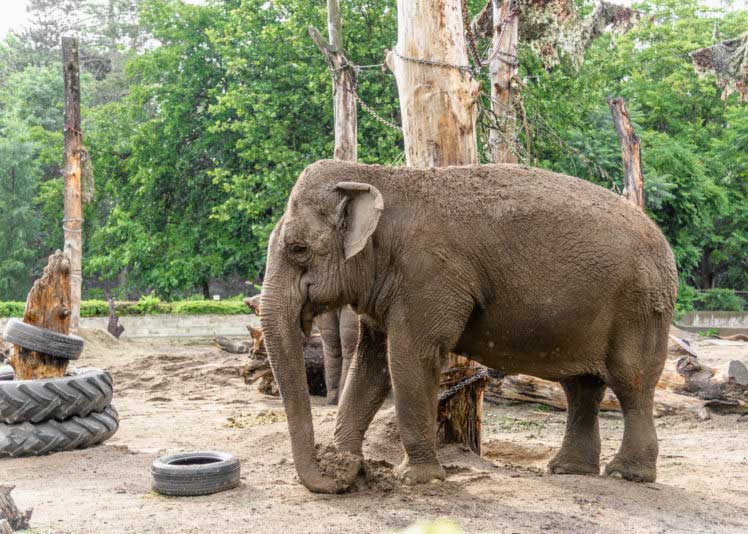Elephants have an average life expectancy of 60 79 years males will only reach their full size at 35 40 years of age that s half their lifetime

Elephants: Remarkable Creatures with a Lifetime of Growth

Elephants, the gentle giants of the animal kingdom, fascinate us with their size, intelligence, and social behavior. These magnificent creatures have an average life expectancy of 60-79 years, making them one of the longest-lived mammals on Earth.
Males, in particular, undergo a prolonged growth process and reach their full size at an astonishing 35-40 years of age, which is approximately half their expected lifetime. This delayed development sets elephants apart from many other animals, showcasing their unique biology and evolutionary adaptations.
Throughout their lives, elephants experience various stages of growth and development. Being a pachyderm, their aging process differs from that of humans and many other mammals. While humans generally reach their full size in their late teens or early twenties, elephants continue to grow well into their middle ages. This extended growth period contributes to their impressive size and strength.
The growth rate of elephants varies according to their species. For example, African elephants, the largest land animals on the planet, tend to grow faster than their Asian counterparts. African elephants can reach up to 3-4 meters in height at the shoulder and weigh around 5,000-7,000 kilograms. On the other hand, Asian elephants, though slightly smaller, can still reach remarkable sizes, often exceeding 2.5 meters in height and weighing roughly 3,000-5,500 kilograms.

This delayed growth in male elephants has important implications for their social dynamics. As they mature, they gradually establish their dominance within the herd. This means that older males, who have reached their full size, often play a critical role in the leadership and protection of their family groups. Their extensive life experience and physical prowess make them commanding figures within the elephant society.
It’s fascinating to observe the intricate social structures within elephant herds. These groups, led by a matriarch, consist of females and their offspring, while adult males tend to form bachelor groups or live solitary lives. The interactions between these individuals are based on complex communication, empathy, and strong family bonds. The long lifespan of elephants allows for generations of knowledge to be passed down, ensuring the survival and well-being of the entire group.
In conclusion, elephants captivate us not only with their immense size, but also with their exceptional lifespan and growth patterns. The fact that males take 35-40 years to reach their full size, representing half their lifetime, reveals the unique nature of these magnificent animals. By delving into their biology and social dynamics, we develop a deeper understanding and appreciation of the incredible world of elephants.
Source: Wikipedia - Elephant
Tags
Share
Related Posts
Quick Links
Legal Stuff

